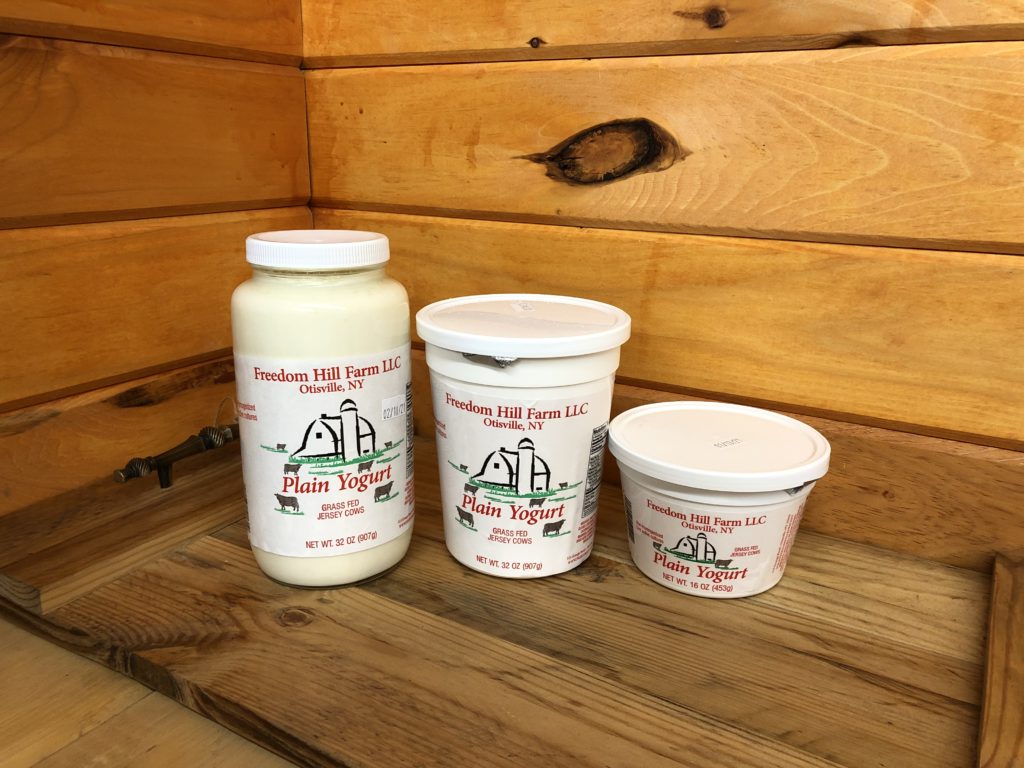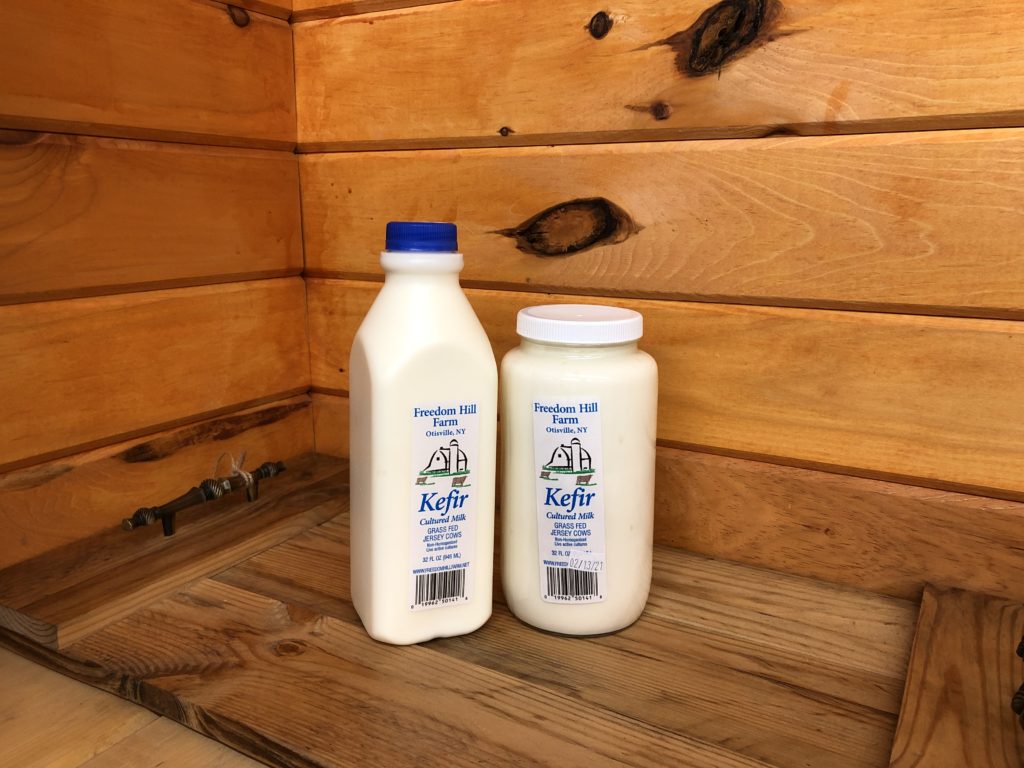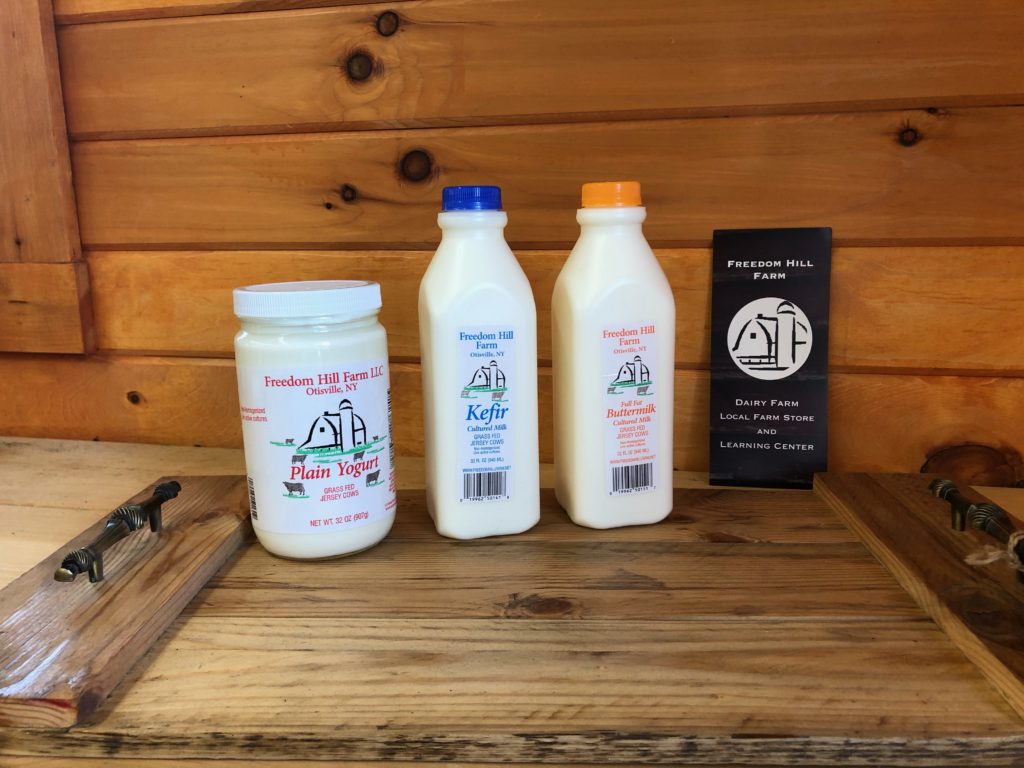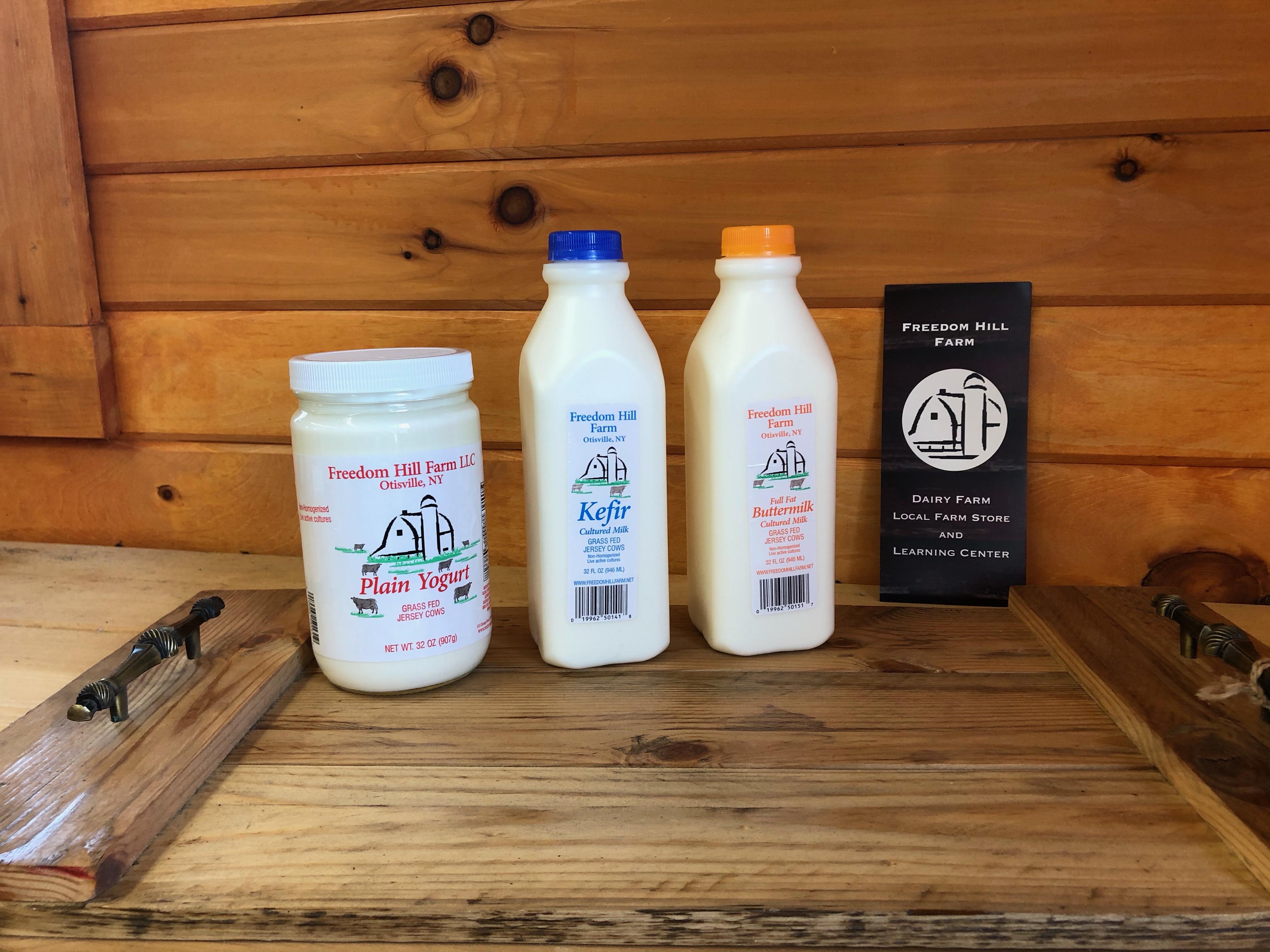Aside from raw milk, you can find a few other products made with our milk at the farm, and at the supermarket (depending on where you shop). So what’s the difference between yogurt, buttermilk and kefir anyway? All three products are cultured milk products, but different cultures and temperatures lead to different end products with different nutritional benefits.
Yogurt

Yogurt is perhaps one of the best known cultured milk products, throughout the world, and is one the most popular in America.Yogurt is the first product that we started making on the farm when we decided to expand in 2009. Our yogurt is a true homestyle yogurt, and is minimally processed. After a gentle pasteurization process (required by New York State), we culture the milk at 110 degrees with a blend of lactobacillus bacteria. We let the yogurt set overnight, usually around 10 hours, and then we pour it off into plastic containers or glass jars for sale. If you are lucky and you make it to the grocery store early in the morning, you can sometimes find our yogurt still a little warm fresh from the farm! Our yogurt is full of healthy fats, live probiotics to help you maintain gut health, and essential nutrients. It’s tart flavor profile makes it very versatile- add maple syrup or honey to sweeten it if you like, eat it plain with berries and granola, strain it and make it a thicker “greek style” yogurt, or substitute it for sour cream on your tacos (one of my personal favorite ways to use it!)
Kefir

We started making kefir in 2010, not too long after the yogurt. It is similar to yogurt, in fact I like to call it a North-Eastern European style yogurt. It is slightly more fluid than the yogurt, and is a bit more sour. We follow a similar process as the yogurt, except we culture milk for kefir at 80 degrees instead of the 110, with a slightly stronger strain of culture. The bacteria in the kefir culture are more acid-loving than the ones in yogurt, which results in the slightly stronger flavor, but it also means that there are more probiotics in the kefir. So while yogurt is excellent for maintaining gut health, kefir is a food to rebuild gut health. We highly recommend kefir after taking antibiotics, digestive upsets, or other stronger gut-disrupting ailments to help sooth and strengthen your gut microbiome. If you love the benefits of kefir, but are still getting used to the taste, it is a nutrient dense base for smoothies, and will blend well with fruits. I am a fan of thick and creamy overnight oats, and I have been known to use kefir instead of milk for this, just make sure to add a little bit of water, and a little bit of extra cinnamon or the sweetener of your choice! Kefir makes an excellent buttermilk replacement, but if you cook it you do lose the probiotic benefits.
Buttermilk
We added buttermilk to our list of products in early 2019, a few years later than the other ones. Contrary to popular belief, buttermilk is not what’s left after making butter. Buttermilk is actually another cultured milk product, but it is the odd one out of the three products. The culture for buttermilk is more pH sensitive than the yogurt and kefir, so during the fermentation process the culture actually dies and there are no probiotics left for your gut. It is made by the same process as kefir- 80 degrees to culture and set overnight, the only thing that differs is the blend of bacteria used to culture the milk. Buttermilk is traditionally used in American cuisine to cook with as it makes baked goods dense while retaining moisture think- buttermilk pancakes, buttermilk biscuits, scones, irish soda bread, etc.. Of course there are many people that enjoy drinking buttermilk plain and appreciate the thickness and tartness of the beverage.

We love providing our customers with these homestyle products, and find that they are very reminiscent for anyone whose family used to make them at home. We use culture from dairyconnecion.com, we use a low and slow pasteurization method to maintain as many nutrients from the milk as possible, and we refuse to add anything-no sugars, no preservatives, and nothing extra. Milk and culture, plain and simple. If you have any other questions about our farm or these products, feel free to email us at orders@freedomhillfarm.net.
